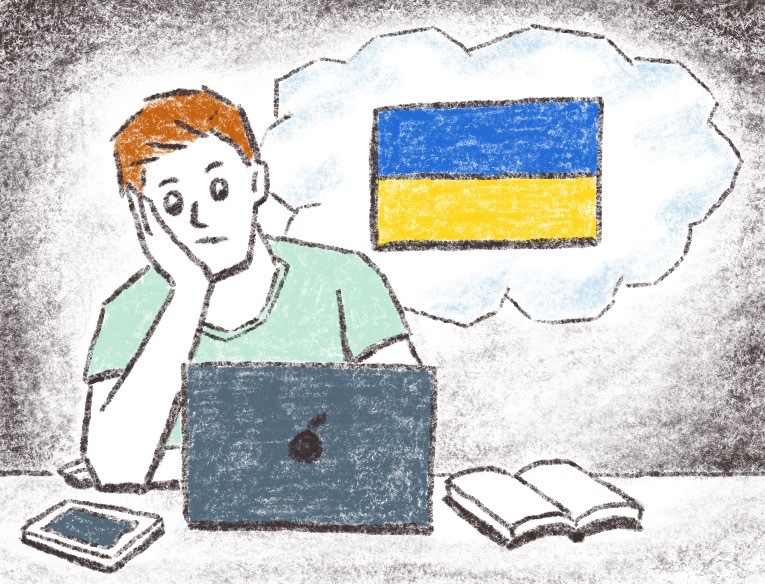Coping with Corona study expands to include participant concerns about Russia-Ukraine war
April 19, 2022
A global research initiative meant to examine how COVID-19 is affecting people’s mental health recently added the Russia-Ukraine war to its study in an effort to better understand how people respond to worldwide conflicts.
Researchers of the study, Coping with Corona, noticed participants were mentioning the war more often than the pandemic, which prompted them to see how the two crises were connected, said Samuel Gosling, a UT psychology professor involved with the project.
“COVID was front and center of everybody’s mind, and then when the Ukraine crisis started up, people kind of forgot (about COVID-19),” Gosling said. “(It’s) amazing how something so ever-present in our mind was kind of quickly relegated to the background.”
Gosling said the study is still measuring how people cope with COVID-19, but will also measure how people are coping with feelings about the Russia-Ukraine war and fears about it possibly escalating further.
“The methodology will be almost exactly the same,” Gosling said. “Instead of just asking people, ‘How often do (you) think about Corona?’ We’ll also be asking them about, ‘How often are you (feeling) concerned about the crisis in Ukraine?’”
Environmental engineering freshman Sophie Snapp said she felt concerned about Ukraine when the news first broke, but that it was similar to when the pandemic started.
“A lot of my immediate stressors are like, ‘I have a calculus exam on Thursday,’ (or) ‘I have a paper due tonight,’ but in the back of my mind, I’m always worried about people dying,” Snapp said. “I’m also like, ‘Why am I even doing this right now? Like, people are dying.’”
Public health freshman Martina D’Orso said she felt that the Russia-Ukraine war has not affected her mental health more than COVID-19 because of her proximity to the virus compared to her proximity to the war.
“The Ukraine crisis is something that (is) happening so far away, that sometimes it’s hard to put a tangible value onto how serious the situation is and how it can affect my life,” D’Orso said. “Meanwhile, the COVID-19 pandemic was actively affecting my life every single day.”
Gosling said he hopes the findings of the study will help people cope with global crises in the future.
“If we can understand what these forces are, the sort of forces influencing people’s stress levels and emotional states and physical and mental health, then we might … find out what (intervention) works and what doesn’t,” Gosling said.



